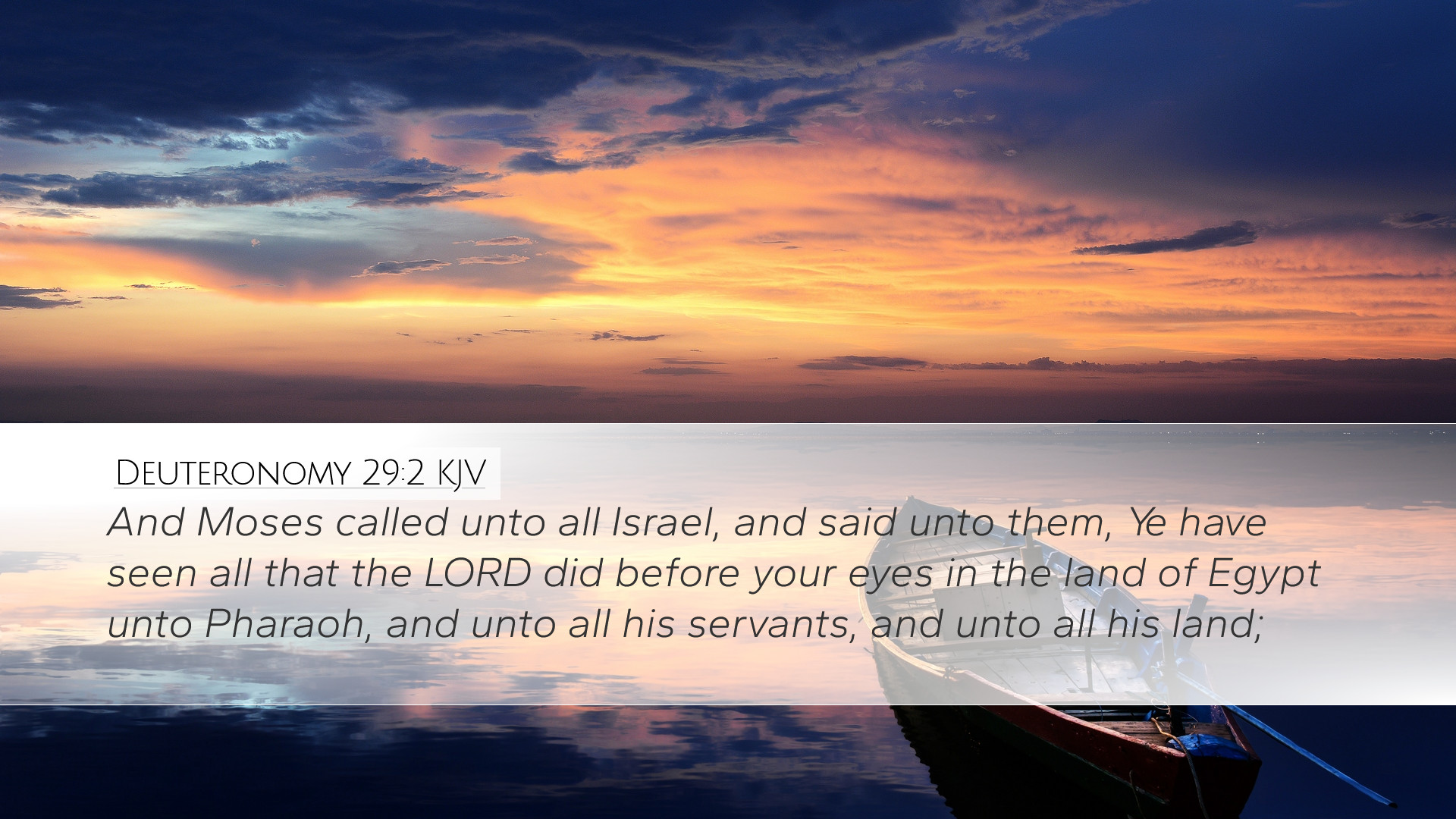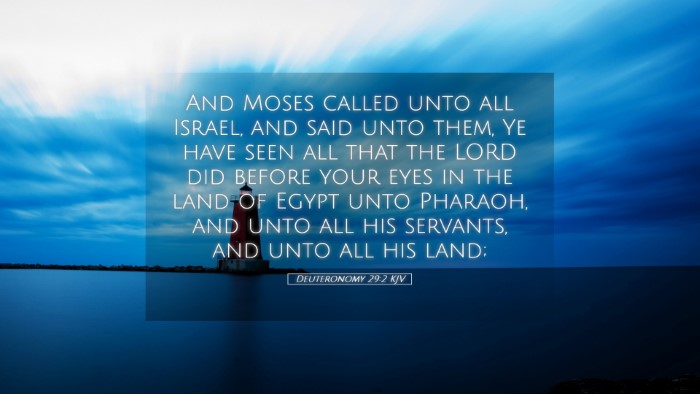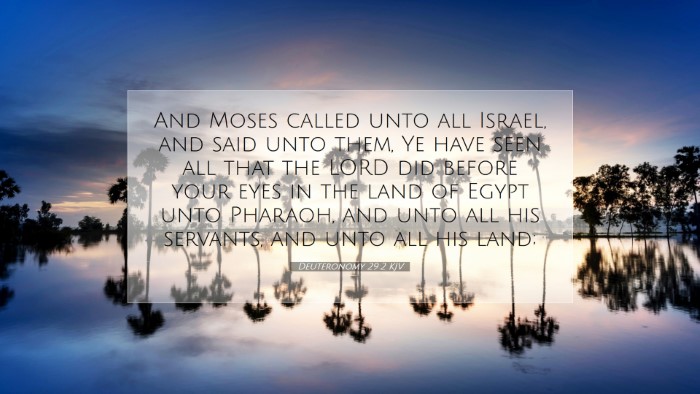Commentary on Deuteronomy 29:2
Verse: "And Moses called unto all Israel, and said unto them, Ye have seen all the Lord did before your eyes in the land of Egypt unto Pharaoh, and unto all his servants, and unto all his land;" (Deuteronomy 29:2)
Introduction
Deuteronomy 29:2 serves as a pivotal moment in the historical narrative of Israel. This verse captures the essence of Moses’ exhortation to the Israelites, reminding them of the mighty acts of God in Egypt and highlighting His ongoing covenant with His people. The historical context is important, as the Israelites stand on the verge of entering the Promised Land, recalling their deliverance from bondage and the faithfulness of God throughout their journey.
Moses’ Call to Remember
Moses begins this passage with a decisive call to the Israelites. It is vital for the leaders and the people alike to recall the miraculous works of God. Scholars like Matthew Henry emphasize the importance of memory in the life of faith. He states that “the remembrance of former mercies is the best encouragement for present and future dependance.”
God’s Mighty Works
In this exhortation, Moses urges the people to reflect on the wonders performed by God in Egypt.
- Deliverance from Slavery: The plagues that befell Egypt were not just acts of judgment but were also divine proofs to Israel of God’s sovereignty and power over the forces of evil.
- Redemption and Covenant: The Exodus is the climax of God’s redemptive work. Albert Barnes notes that this liberation was not merely physical but also spiritual, marking the beginning of a unique relationship between God and Israel through covenant.
The Importance of Witnessing God’s Actions
Adam Clarke remarks on the significance of witnessing God’s actions firsthand as it strengthens faith. The Israelites’ experiences serve as testimonies not only for their generation but also for those to come. Clarke elucidates that this collective memory becomes foundational for communal identity and worship.
The Role of Leadership
Moses, as a leader, holds the responsibility to remind the people of these monumental events. Matthew Henry points out that effective leadership involves bringing to the minds of followers the deeds of God that encourage their faith. This act of commemoration strengthens both the leader and the people.
The Context of Covenant Renewal
This verse occurs during a significant moment of covenant renewal, where Moses reiterates the stalwart commitment of God towards His people. The call to remembrance is not just for personal reflection but serves a communal function as well, anchoring the nation in their identity as God’s chosen people.
Implications for the Present
For pastors, theologians, and students of Scripture, this call to remember speaks volumes. It prompts self-examination and prompts contemporary believers to consider their own journeys and the mighty acts of God in their lives, thus linking the past with the present in faith.
- Encouragement for Trials: Just as the Israelites were reminded of God’s past provisions in their trials, believers today can draw strength from their histories and the faithful nature of God.
- Community Identity: The collective memory of God’s action fosters unity and shared faith within the church. This can spur a communal revival of faith.”
Conclusion
Deuteronomy 29:2 encapsulates a profound moment of remembrance, an essential practice for all of God’s people. By recalling His past actions, the Israelites can affirm their faith and confidence in His future promises. As they prepare to enter a new land, they are reminded of their identity rooted in God’s faithfulness. The insights from the public domain commentaries reflect a timeless truth for all believers: remembering God's exploits fortifies faith, informs present responsibilities, and enhances community identity.


